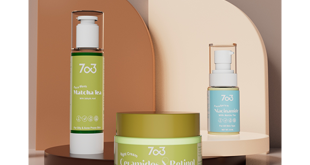A healthy scalp is the foundation for strong, beautiful hair, but many people deal with the persistent issues of dry scalp and dandruff. While these conditions are often confused, they have distinct causes and symptoms. Interestingly, a dry scalp can sometimes lead to dandruff, creating a vicious cycle of discomfort and flaking. To better address these issues, it’s crucial to understand the relationship between dry scalp and dandruff, explore their root causes, and implement effective remedies.
What is Dry Scalp?
A dry scalp occurs when the skin on your scalp lacks adequate moisture. This condition manifests in symptoms such as itchiness, tightness, and small, dry flakes. The main contributors to a dry scalp include:
- Environmental Factors
Cold weather, low humidity, and exposure to harsh winds can strip moisture from the scalp, making it dry and flaky. - Dehydration
Insufficient water intake affects your skin’s hydration, including your scalp. - Hair Care Practices
Overwashing, using shampoos with harsh chemicals, or frequent heat styling can disrupt the scalp’s natural balance. - Underlying Skin Conditions
Issues such as eczema or psoriasis often result in dryness, itchiness, and flaking.
A dry scalp can often be addressed through hydration and gentle care, but left untreated, it may lead to further complications, such as dandruff.
What is Dandruff?
Dandruff is a condition characterized by larger, oilier flakes and persistent itchiness. It is often caused by an overgrowth of Malassezia, a yeast-like fungus that thrives on the scalp’s natural oils. Key factors contributing to dandruff include:
- Excess Oil Production
A greasy scalp provides an ideal environment for fungal growth. - Sensitivity to Hair Products
Certain ingredients in hair products can irritate the scalp, leading to flaking. - Skin Conditions
Conditions like seborrheic dermatitis often result in severe dandruff and redness.
Although dandruff and dry scalp have different causes, they can be interconnected. Dry scalp may weaken the skin’s protective barrier, making it more prone to fungal infections that trigger dandruff—a significant cause of dandruff in hair.
The Link Between Dry Scalp and Dandruff
While dandruff is often associated with an oily scalp, it can also stem from dryness. When the scalp becomes dry, the skin’s natural defenses weaken, making it more susceptible to fungal overgrowth. Additionally, the irritation caused by dryness may lead to scratching, further damaging the scalp and exacerbating flaking.
It’s important to differentiate between these two conditions to ensure the right treatment approach.
Causes of Dry Scalp Leading to Dandruff
Dry scalp can trigger dandruff in several ways:
- Lack of Hydration
Dehydration affects the skin’s ability to retain moisture, leading to flaking and irritation. - Harsh Hair Products
Shampoos containing sulfates, alcohol, or fragrances can strip natural oils from the scalp, leaving it vulnerable. - Environmental Changes
Cold, dry weather during winter can exacerbate both dryness and dandruff. - Underlying Conditions
Chronic skin issues like eczema can lead to persistent dryness, creating an environment conducive to dandruff.
By addressing these triggers, it’s possible to manage and prevent both dry scalp and dandruff.
Remedies for Dry Scalp and Dandruff
Both conditions are manageable with consistent care and targeted solutions. Below are some effective remedies:
1. Hydration and Moisturization
- Stay Hydrated
Drinking at least 8–10 glasses of water daily helps keep your skin and scalp hydrated. - Moisturizing Products
Use shampoos and conditioners enriched with hydrating ingredients like aloe vera, shea butter, or glycerin to nourish the scalp.
2. Anti-Dandruff Products
- Look for shampoos containing active ingredients like:
- Zinc Pyrithione: Reduces fungal growth.
- Salicylic Acid: Removes dead skin cells.
- Ketoconazole: Targets Malassezia effectively.
- Regular use of these shampoos can help combat the causes of dandruff in hair and reduce flakes.
3. Scalp Care Routine
- Exfoliation
Use a gentle scalp scrub once a week to remove dead skin cells and buildup. - Avoid Overwashing
Washing hair every other day or less helps retain natural oils. - Gentle Products
Opt for sulfate-free and alcohol-free shampoos to prevent further dryness.
4. Natural Remedies
- Coconut Oil
Apply coconut oil to the scalp for deep hydration and antifungal benefits. - Tea Tree Oil
Add a few drops of tea tree oil to your shampoo to reduce fungal overgrowth and itchiness. - Aloe Vera
Apply aloe vera gel directly to the scalp to soothe irritation and lock in moisture. - DIY Masks
Combine ingredients like yogurt, honey, and olive oil to create a deeply nourishing scalp treatment.
When to Seek Professional Help
If symptoms persist despite trying these remedies, it may be time to consult a dermatologist or trichologist. Indications for professional help include:
- Persistent itching or redness.
- Severe flaking that doesn’t respond to over-the-counter treatments.
- Signs of infection, such as pus or swelling.
A specialist can provide tailored treatments and identify underlying conditions that may be contributing to dryness and dandruff.
Prevention Tips
Preventing dry scalp and dandruff requires consistent care. Here are some tips to maintain a healthy scalp:
- Stay Hydrated: Drink plenty of water daily to keep your skin hydrated.
- Protect Your Scalp: Wear hats in harsh weather to shield your scalp from dryness.
- Choose Mild Products: Use shampoos and conditioners free of harsh chemicals.
- Healthy Diet: Include foods rich in omega-3 fatty acids, zinc, and vitamins to promote scalp health.
Conclusion
Understanding the connection between dry scalp and dandruff is key to addressing these common scalp issues effectively. While dryness can lead to dandruff by weakening the scalp’s natural defenses, both conditions can be managed with proper care. By staying hydrated, using suitable products, and maintaining a healthy scalp care routine, you can tackle the causes of dandruff in hair and enjoy a flake-free, comfortable scalp. With patience and consistency, you can restore your scalp’s health and confidence.
 Daily Blogger News Stay updated with the latest trends and insights. Your reliable source for daily updates and information.
Daily Blogger News Stay updated with the latest trends and insights. Your reliable source for daily updates and information.







